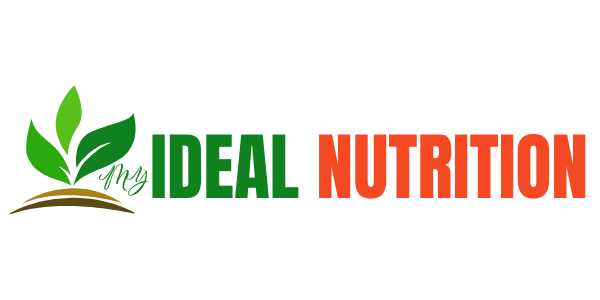Optimum nutrition is a cornerstone of good health and wellness that everyone should strive to achieve. In simple words, it entails feeding your body with just the right proportions of nutrients in order to facilitate energy, long life, and good health. With the fast pace of modern life, busy schedules, and the abundance of processed foods, many people struggle to maintain a diet that supports optimum nutrition.
Focusing on optimum nutrition is essential not only for preventing chronic diseases like diabetes and heart disease but also for enhancing daily energy levels, mental clarity, and even athletic performance. Whether you want to lose weight, gain muscle, or just feel better in your day-to-day life, understanding the principles of optimum nutrition can make a significant difference.
We will explore key ideas behind optimum nutrition, practical strategies for implementing it, real-life examples, and expert insights to help you take control of your health through food.
Key Takeaways:
- Optimum nutrition involves balancing macronutrients and micronutrients to meet individual needs.
- The important concepts of a nutritious diet are variety, moderation, and the whole foods.
- Individualization and professional care will increase nutrition efficiency and health effects.
What Is Optimum Nutrition and Why Does It Matter?
Optimum nutrition is commonly defined as eating the right nutrients in the right amounts and at the right times to achieve the healthiest and longest life possible. It goes beyond avoiding malnutrition or counting calories; it is a way of maintaining balance and diversity in what you eat in order to maintain all the body processes.
The macronutrients required by the human body include carbohydrates, proteins, and fats, and the micronutrients include vitamins, minerals, fiber, and others to have a perfectly functioning body. To take an example, proteins are used to heal the tissue and support immunity, carbohydrates provide energy, and healthy fats are beneficial in brain functioning and the production of hormones.
According to experts, achieving optimum nutrition means:
- Consumption of the most colorful fruits and vegetables contributes to the necessary vitamins and antioxidant coverage.
- The preference for whole grains instead of refined carbs in digestion and heart health.
- Such as nuts, seeds, fish (a good source of omega-3s), and healthy oils such as extra virgin olive oil.
- Moderating the consumption of red meat, processed food, and added sugars.
Such a balanced diet is consistent with the advice of public health authorities suggesting five portions of fruits and four of vegetables on a daily basis, together with sufficient protein and healthy fats.
Real-Life Example:
Such was the case of Sarah, a 35-year-old office worker who experienced fatigue and craved sugar. Through the progressive substitution of processed snacks with nuts and fresh fruits and supplementation of lean fish three times a week, her energy levels increased manyfold in a couple of weeks. This small but consistent shift towards optimum nutrition changed her well-being.
Note: Achieving optimum nutrition is not one-size-fits-all. Personal needs depend upon age, level of activity, genetic factors, and conditions of health conditions. This can be addressed by consulting a nutritionist to have the best plan that suits you.
What is the Best Way to balance the Macronutrients to optimize health?
Balancing macronutrients—carbohydrates, proteins, and fats—is fundamental to optimum nutrition. All the macronutrients are important and should be taken in the proportions that fit your lifestyle and objectives.
| Macronutrient | Primary Role | Ideal Sources | Percentage of Daily Calories* |
| Carbohydrates | Energy provider | Whole grains, fruits, and vegetables | 45-65% |
| Proteins | Tissue repair, enzyme production | Lean meats, fish, legumes, nuts | 10-35% |
| Fats | Hormone production, brain health | Olive oil, nuts, seeds, fish fats | 20-35% |
*The percentage is different with age, gender, and activity.
Complex carbs such as brown rice and quinoa can be chosen to have a slow energy release and avoid terms of spikes in blood sugar content. Protein of mixed origin (both plant-based, such as soy and beans) helps in restoring muscles, particularly post-exercise. Fats concentrate on unsaturated ones, and when it comes to saturated and trans fats, there should be no excess.
Expert Insight:
According to the registered dietitian Dr. Lisa Hudson, the concept of balancing macronutrients is not about the rigid solutions but about harmony, taking care of your needs and body. It is not only about the amount of such macronutrients, but the quality of them.”
Comparing Popular Diets: Which One Supports Optimum Nutrition Best?
People often ask how popular diets align with optimum nutrition principles. The following table compares three popular eating styles with their policy on balance, variety, and nutrient density.
| Diet Type | Macronutrient Focus | Emphasis on Whole Foods | Health Benefits | Potential Downsides |
| Mediterranean | Balanced fats, moderate carbs, and protein | High (vegetables, olive oil, fish) | Heart and brain health, longevity | Can be costly, requires cooking |
| Keto | High fat, very low carbs | Moderate (meats, oils) | Weight loss, blood sugar control | Restrictive nutrient gaps are possible |
| Plant-Based | High carbs, moderate fats, moderate protein | Very high (fruits, legumes) | Anti-inflammatory, heart, and gut health | Requires careful B12 and iron planning |
*This is only the general tendency; every person can be personal.
The Mediterranean diet closely matches optimum nutrition by promoting variety, healthy fats (like omega-3 and olive oil), lean proteins, and lots of plant-based foods1. On the contrary, keto can provide rapid weight loss, but without careful planning, it can become low in fiber and certain vitamins. Vitamins and antioxidants are rich in plant-based diets, which require consideration with regard to some micronutrients.
Internal Link: If you want to know more about meal planning on these diets, our detailed guide Chipotle Nutrition: Unlock the Facts & Make Healthier Choices will give you the inside information.
Overcoming Common Challenges to Achieve Optimum Nutrition
There are several barriers to healthy eating: time, food preferences, or bad information, among many others. The knowledge about how to face these barriers is the most valuable element of sustainable nutrition.
Use Case:
John is a working father with a busy schedule; he discovered that he could not afford to depend on fast food during the weekdays, so he decided to meal prep over the weekends. He targeted the preparation of batches of cooked grains, cooked chicken on the grill, and steamed vegetables that are easy to prepare.
Tips to become healthy through better nutrition in spite of all deterrents:
- Preparate food in advance to prevent last-moment unhealthy decisions.
- Include fruit and vegetables of all colors in salads, snacks, and meals.
- There is also a great benefit to eating foods that contain more nutrients, or whole foods, instead of the processed foods, which are more readily available.
- Drink water and also avoid high-sugar beverages.
Keep in mind: Eating right does not have to be very perfect; it is better to make minor steps in the right direction day by day.
Behavioral expert Dr. Hannah Kim highlights, “Setting realistic goals and building habits gradually makes optimum nutrition achievable for anyone.”
Future Trends and Innovations in Optimum Nutrition
The science of nutrition is still developing, as more and more important is becoming the knowledge about individual variability and the possibility to design nutrition according to the unique needs.
| Trend/Innovation | Description | Impact on Optimum Nutrition |
| Nutrigenomics | Using genetic data to tailor diet | Customized diet plans for better health outcomes |
| Digital Food Tracking | Apps and wearables that monitor nutrition | Improved self-awareness and diet adjustments |
| Functional Foods | Foods designed for specific health benefits | Enhanced nutrient intake and disease prevention |
*As you can see in the table, there are new tools that can be used to improve nutrition personalization.
Personalized nutrition, leveraging genetic, lifestyle, and microbiome data, is promising to refine optimum nutrition beyond general guidelines. An example is the people with genetic inclinations towards some conditions that can modify the fat content or micronutrient emphasis to achieve better results.
Insight Personalized nutrition might overestimate these trends, but even in its most optimistic form, it is not a substitute to simple nutrition principles that favor balance and whole foods.
Conclusion
Optimum nutrition is about thoughtfully nourishing your body with a balanced mix of macronutrients, micronutrients, and antioxidants to promote health and longevity. Its importance consists in that it feels going with energy, immunity, psyche, and preventing illness.
The major lessons learned are the necessity to have variety, balance, and good quality of food choices, and individualization, paying respect to the needs of a person. Real-life practice and professional advice reveal that long-term change is significant and worthwhile through meal planning and the integration of various whole foods.
As a starting point, evaluate your current diet, aiming to increase the intake of fruits, vegetables, lean proteins, and healthy fats, and consider exploring delicious, wholesome meals like those in our guide Chicken Burrito Recipe: Easy, Delicious, and Family-Friendly. With knowledge and commitment, optimum nutrition can become your reality for a healthier, more vibrant life.
FAQs
Q1: What does optimum nutrition mean?
A: Optimum nutrition means eating the right balance of nutrients to support your best health and energy levels.
Q2: How can I balance my macronutrients for optimum nutrition?
A: Emphasize on beneficial carbs, proteins, and fats in the ratio that fits your preferences and objectives.
Q3: Which diet best supports optimum nutrition?
A: Diets like Mediterranean that emphasize variety, whole foods, and healthy fats typically align well with optimum nutrition principles.
Q4: What does it take to counter the obstacles to a healthy diet?
A: Planning meals, choosing whole foods, and making gradual changes help maintain optimum nutrition despite a busy life.
Q5: Is personalized nutrition important for optimum nutrition?
A: Yes, genetically based and lifestyle-based diet can improve the outcomes, but must be constructed on top ofthe fundamentals of nutrition.













